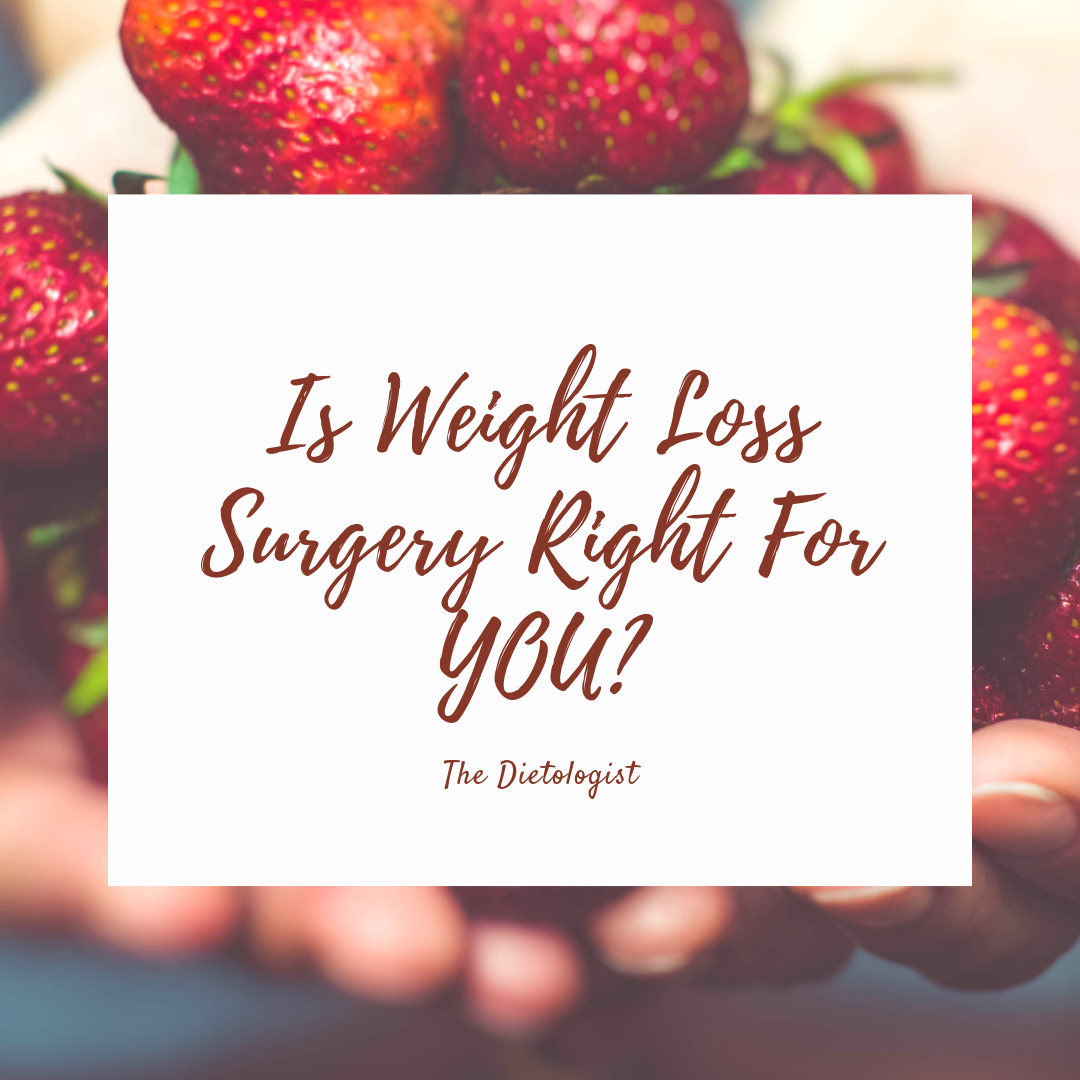WHY PROTEIN IS IMPORTANT AFTER BARIATRIC SURGERY
Protein provides the basic building blocks for the body. They are made of amino-acids and are found in every cell, tissue and organ in the human body. Protein is needed for growth and repair, no matter how young or old we are.

Protein is important for a number of reasons:
• It increases satiety (the feeling of fullness) when eating smaller portions.
• It helps you heal after surgery.
• It helps to preserve more muscle mass while losing body fat.
Not consuming adequate protein may cause your body to break down its own protein stores (muscles) to meet its needs. Breaking down your muscles will make it harder for you to lose weight and may result in an earlier weight loss plateau. Other signs of inadequate protein intake can include delayed wound healing, frequent infections, weakness, increased hair loss/thinning and dry/brittle nails.
How much protein do I need to eat after bariatric surgery?
Requirements for the amount of protein you should consume is calculated according to each individual.
An average daily intake of protein, post bariatric surgery is about 80-100g per day. Certain health conditions may mean your intake of protein will need to be less, please speak to your dietitian about this pre and post WLS. Immediately after surgery meeting protein requirements may be difficult to achieve, as initially patients won’t be able to consume larger amounts of food, focusing on a diet of liquids and blended foods to allow the stomach to adjust and heal. Ideally, this is a goal that should be built up, as soon as possible post-surgery
Your protein target should be split between 3 meals or 3 meals and 2-3 snacks (if you are struggling to eat), aiming for 20-30g at each meal and 5-10g per snack.
What are great sources of protein?
The best sources of protein are lean meats, poultry, fish, eggs, Quorn, soya, milk, cheese, yoghurt, beans, pulses/lentils, soya milk, tofu and powdered protein supplements and meal replacements.
It is important to remember that not all foods that are high in protein are positive, as they can sometimes also contain high levels of fat, which would be counterproductive to weight loss. Foods to avoid on most occasions are often the more processed red meat products like salami, sausages, bacon, black pudding, fried foods like breaded/battered fish or chicken, and party foods like sausage rolls, pork pies, scotch eggs. Remember that what you eat is about balance, so these foods are fine to eat as part of Van’s 80:20 rule.
How can I reach my 80-90g of protein in a day?
Breakfast: 2 egg omelette (14g protein)
Snack:
250ml glass of milk (10g protein)
Lunch: 1 small fillet (90g) of salmon (23g protein). This can be eaten with vegetables and 2 new potatoes.
Snack: 1⁄2 apple with 1 tablespoon of peanut butter (5g protein)
Evening meal: 100g cooked chicken (28g protein). This can be eaten with vegetables and 2 new potatoes.
Snack: 100g Skyr yoghurt (10g protein)
Total: 90g protein
What can I do if I’m struggling to eat high protein foods?
Following surgery, changes in food preferences are common. You may find that you have aversions to specific high protein foods. Incorrect eating techniques after surgery can cause discomfort and vomiting, which is often mistaken for food intolerance. Aim to have softer protein portions or add a little gravy or sauce. Remember as you master the art of eating slowly add less gravy and sauce to aid satiety.
If there are very few protein foods that you are able to tolerate, taking a powdered protein supplement may be appropriate.
Is there such a thing as too much protein?
Yes. Eating too much protein can result in excess protein being stored as fat, not muscle, and eating very large amounts of protein (over 200g/day) could actually be bad for the kidneys. It’s important to get a balance.
If you need help with improving your protein intake or support getting to your dream weight after bariatric surgery, why not book a Discovery Call?



